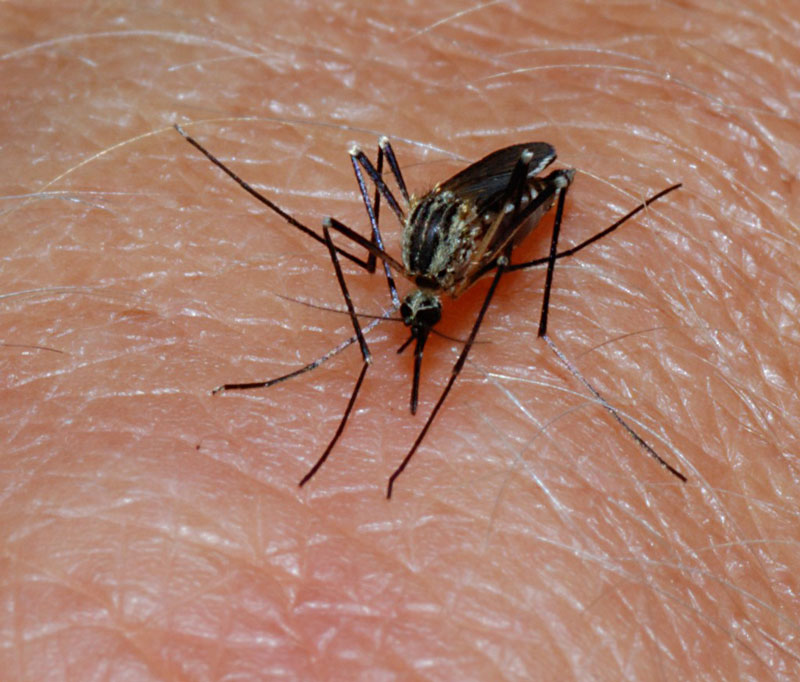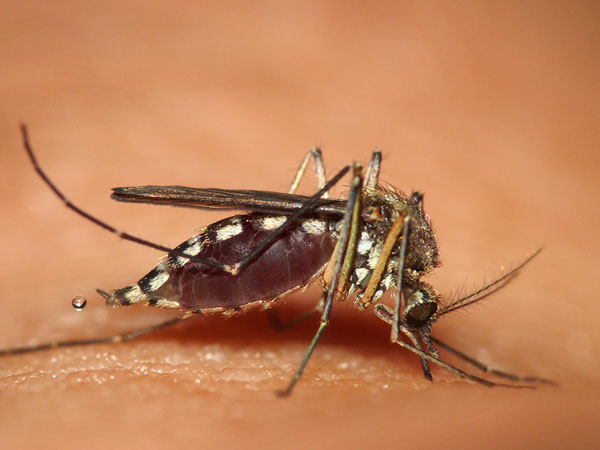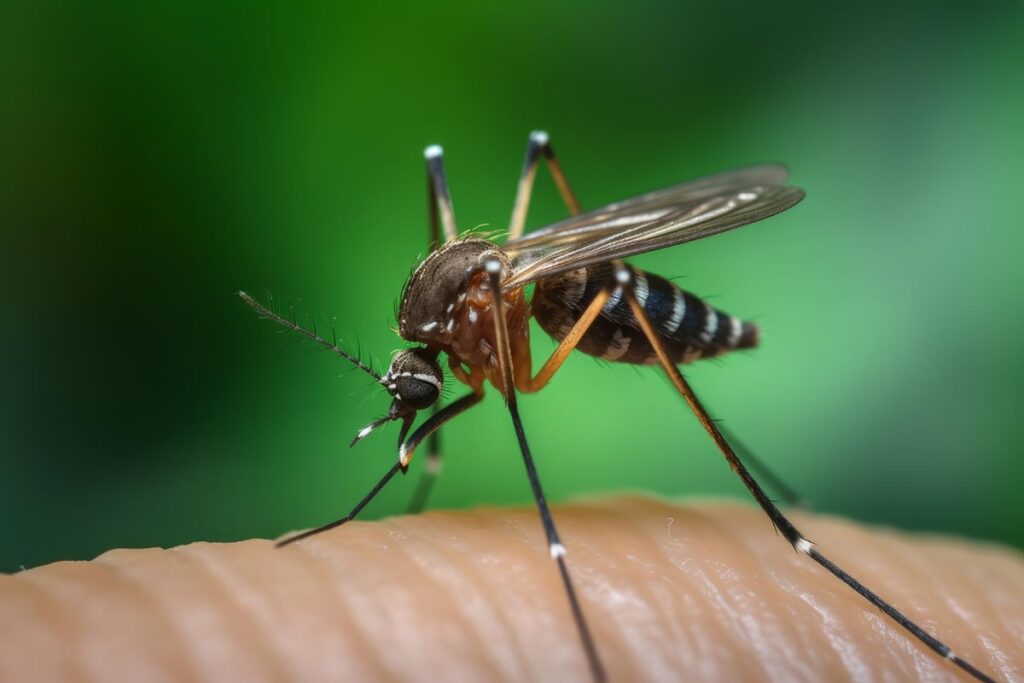1. Killers: Mosquitoes kill more people than any other animal on earth. This is because some mosquitoes carry diseases such as malaria, dengue fever, yellow fever and others, killing millions of people every year (mainly children and the elderly in developing countries). Mosquitoes can also act as an intermediate host for parasites such as heartworm, which can kill dogs
2. Species: There are more than 3500 mosquito species, but only 3 species can transmit diseases to humans (Anopheles, Culex and Aedes)
3. Mosquito bites: Only female mosquitoes bite humans and animals; male mosquitoes don’t have the necessary mouthparts to bite at all. Female mosquitoes suck our blood because they need the nutrients in it to develop their eggs. The blood is used exclusively for the eggs. Both female and male mosquitoes feed on nectar and other plant sugars
4. Preferred victims: Mosquitoes usually prefer animals such as cows, horses and birds to humans – and some mosquito species don’t bite humans at all. An example of this is the ‘Culiseta melanura’ mosquito species, which only bites birds. Mosquitoes also bite insects (such as dragonflies) and jumping toads (such as frogs)
5. Speed: Mosquitoes fly at between 1.5 and 2.5 km/h, which is a relatively slow speed (even in the insect world). Even butterflies fly faster!

Fact: There are several factors that can increase the tendency for mosquito bites – including: blood type, body size, scent, sweat, metabolism, genes, clothing color and even beer consumption!
6. Wingbeat: A mosquito wing beats 300-600 times per second. However, the record holder is the ‘Forcipomyiinae’ midge (in the family Ceratopogonidae), which beats its wings 1046 times per second!
7. Reproduction: Mosquitoes need water to lay their eggs and all mosquitoes hatch in water. However, they don’t need more than a small puddle. For the same reason, garden owners should also always be aware of removing standing water in their garden (such as in gutters, car tires, pots, buckets, etc.)
8. Habitat: Most mosquito species stay relatively close to their birthplace throughout their lives, but some species can fly up to 150 km away to find a suitable habitat
9. Age: Most mosquitoes can live for up to 6 months, but the average lifespan is obviously somewhat lower
10. CO2: Mosquitoes can detect carbon dioxide (CO2) from 50 meters away, which is useful for finding humans or animals to suck blood from (humans and animals exhale carbon dioxide). In addition, mosquitoes also use body odor, body temperature and infrared vision to detect heat radiation from their prey
Why do some people get more mosquito bites than others?

Around 20% of people tend to get stung more than others. There are many possible causes:
- Blood type: Blood type O is the most popular among mosquitoes. This is followed by blood type A and finally blood type B. In addition, 85% of all humans secrete a chemical substance that indicates their blood type to mosquitoes. The remaining 15% do not and are therefore less exposed, regardless of their blood type
- Carbon dioxide: The more CO2 you exhale, the greater the risk of mosquitoes finding you. Therefore, large people (such as adults) are more at risk than small people (such as children). People with heavy breathing are also more at risk in this regard
- Scent: Because our natural scent is made up of more than 300 chemical substances, each of which has an individual composition, these naturally have a different attraction to mosquitoes
- Bacteria on the skin: According to a 2011 study, the amount of bacteria on our skin has an effect on our attraction to mosquitoes. In general, the study found that the more bacteria, the more mosquitoes. However, the study also showed that the presence of many bacteria, spread across a wide diversity of bacteria, made humans less attractive to mosquitoes
- Exercise and metabolism: Sweat – and especially sweat from strenuous physical activity – has an attractive effect on mosquitoes. In addition, individual variations in metabolism may mean that some people are more easily found by mosquitoes than others
Other factors that make us more attractive to mosquitoes include:
- Consumption of beer (a single 33 cl. beer is enough!)
- Pregnancy (pregnant women are both hotter and exhale more CO2 than other people)
- Clothing color (supposedly colors that stand out)
- Genes (it is estimated that as much as 85% of the difference in human tendency to mosquito bites is due to genes!)





